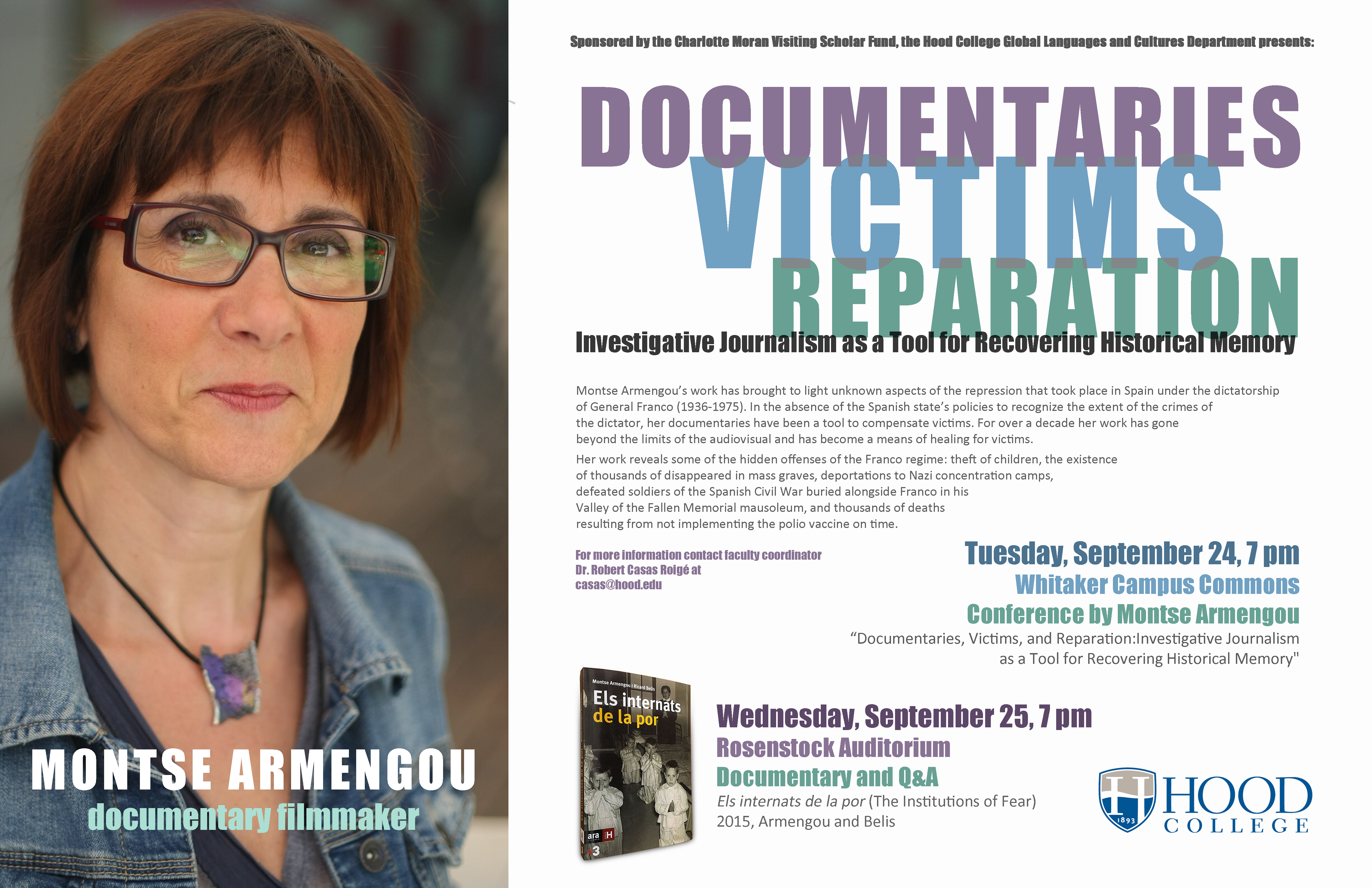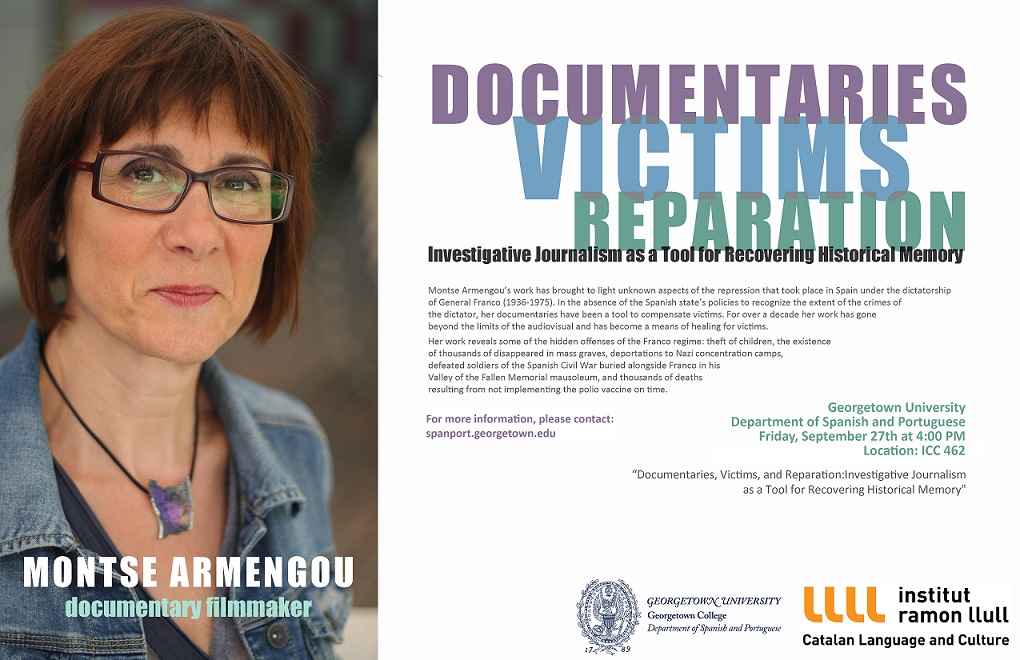Hood College
Sponsored by the Charlotte Moran Visiting Scholar Fund, the Hood College Global Languages and Cultures Department
Tuesday, September 24, 7 pm
Whitaker Campus Commons
“Documentaries, Victims, and Reparation: Investigative Journalism as a Tool for Recovering Historical Memory”, conference by Montse Armengou
Armengou’s work reveals some of the hidden offenses of the Franco regime: theft of children, the existence of thousands of disappeared in mass graves, deportations to Nazi concentration camps, defeated soldiers of the Spanish Civil War buried alongside Franco in his Valley of the Fallen Memorial mausoleum, and thousands of deaths resulting from not implementing the polio vaccine on time.
Armengou’s talk will discuss why some investigative journalists in Spain have to step in where the state has failed in terms of reparation, the difficulties of researching inaccessible files or dealing with destroyed evidence and confronting the fear that silences some victims of the dictatorship. As one of the victims of Franco's repression has claimed that because of the Spanish state's failure to confront the truth of the past, "democracy has not done the job of democracy."
Wednesday, September 25, 7 pm
Rosenstock Auditorium
Els internats de la por / Los internados del miedo (The Institutions of Fear) Directed by Armengou and Belis (2015), documentary and Q&A
For more information contact faculty coordinator Dr. Robert Casas Roigé at casas@hood.edu
Georgetown University
Department of Spanish and Portuguese
Friday, September 27, 4:00pm
Location: ICC 462
“Documentaries, Victims, and Reparation: Investigative Journalism as a Tool for Recovering Historical Memory”, conference by Montse Armengou
Montse Armengou’s work has brought to light unknown aspects of the repression that took place under the dictatorship of General Franco (1936-1975) in Spain. In the absence of the Spanish state’s policies to recognize the extent of the crimes of the dictator, her documentaries have been a tool to compensate victims. For over a decade her work has gone beyond the limits of the audiovisual and has become a means of healing for victims.
Her work reveals some of the hidden offenses of the Franco regime: theft of children, the existence of thousands of disappeared in mass graves, deportations to Nazi concentration camps, defeated soldiers of the Spanish Civil War buried alongside Franco in his Valley of the Fallen Memorial mausoleum, and thousands of deaths resulting from not implementing the polio vaccine on time.
This session will discuss why some investigative journalists in Spain have to step in where the state has failed in terms of reparation, the difficulties of researching inaccessible files or dealing with destroyed evidence and confronting the fear that silences some victims of the dictatorship. As one of the victims of Franco's repression has claimed that because of the Spanish state's failure to confront the truth of the past, "democracy has not done the job of democracy."







